Geraldine James interview: Anne With An E, Star Wars, Shakespeare
To mark the arrival of Anne With An E season 2, we spoke to actor Geraldine James about Marilla Cuthbert, Utopia, Star Wars and more…
Speaking to the New York Times in 1990, Geraldine James praised the wonderful parts Shakespeare wrote for women. “I think he really liked women,” she told the NYT. At the time, James was rehearsing the Broadway transfer of Peter Hall’s The Merchant Of Venice. She’d played Portia in the hugely popular London production, which had amassed advance ticket sales of well over a million pounds, and was continuing the role in New York.
James hadn’t been keen on the part when Hall first asked. “I said ‘Oh no, she’s such a stuck-up—. I don’t think I want to play her’. Then I said ‘Who’s playing Shylock?’ and he said ‘Dustin Hoffman’ so…”
“There are lots of big American actors coming over to do theatre now,” James tells me in our phone interview, “but Dustin was one of the first. He came to Peter Hall and said ‘I want to do Shakespeare, will you direct me as Hamlet?’ and Peter Hall said ‘Er, possibly? I’d suggest you do something else before you attempt Hamlet’ and he said to have a look at Shylock so he had a look and he did it.”
James loved working with Hoffman, who was fresh from his 1989 Oscar win for Rain Man. “Dustin was brilliant,” she says. “He was very, very popular. Slightly more popular in New York than here I suppose. No, that’s not true. People loved it and critics just… I don’t know, I’m afraid I don’t read them.” Both Hoffman and James earned Tony award nominations for The Merchant Of Venice. She won, he didn’t.
Almost thirty years later, James still loves Shakespeare, but finds him not quite as fond of her. “I’d love to do more Shakespeare but Shakespeare didn’t write parts for older women. He had nobody to act them I suppose. I love playing Shakespeare. I haven’t done any for years.”
Instead, James has spent those years in an often surprising assortment of roles. After playing in close succession two English aristocrats in colonial India (Mirabehn in Richard Attenborough’s 1982 film Gandhi and Sarah Layton in 1984 BBC hit The Jewel In The Crown), she vowed early on not to repeat herself. And, from Rose Garrity in Kay Mellor’s sex work drama Band Of Gold to Harvey Pincher’s highly amenable mother in Little Britain’s “bitty” sketches, and all manner of parts in between, James has stuck to her word.
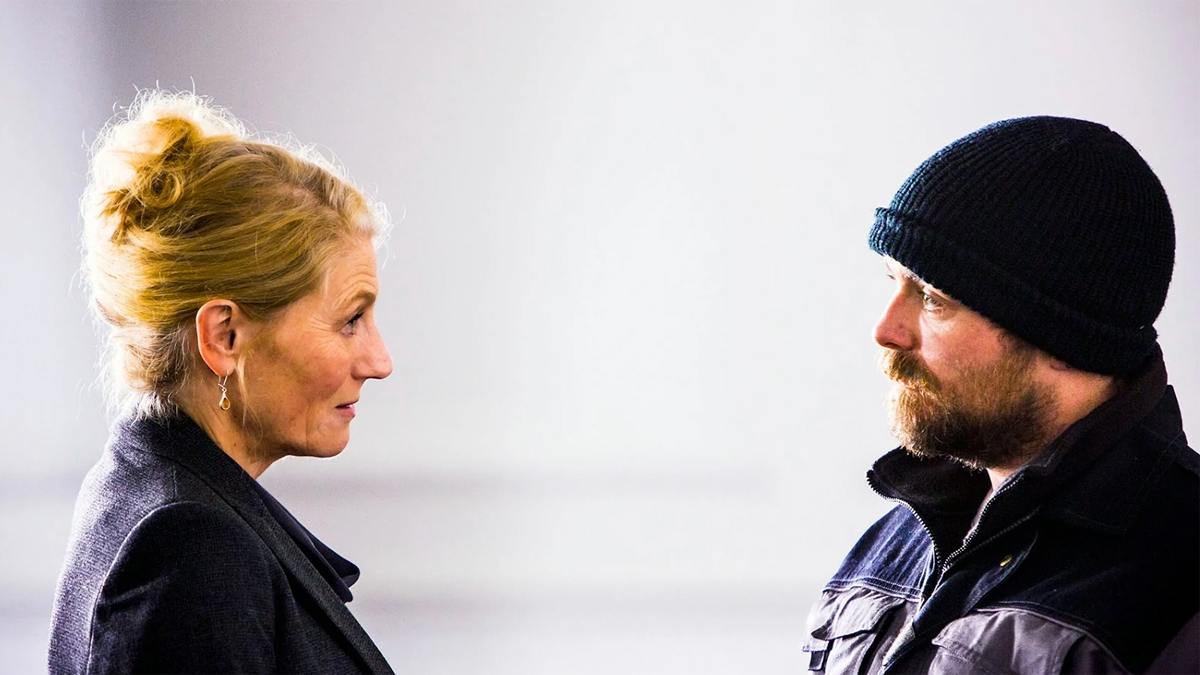
In 2013, she played MI5 agent Milner in Channel 4 conspiracy thriller Utopia, which ended prematurely after just two series. “I’m stopped more regularly about Utopia than almost anything I’ve ever done,” she tells me. “People will come up and say ‘you were in Utopia, why was there no more of it?’ I have no idea. People loved that show. I loved that show. I adored doing that. I thought it was miraculous. [Creator] Dennis Kelly is one of the very, very greats in the writing world.”
More recently, in 2016 James officially joined the Star Wars universe with a brief role in Gareth Edwards’ Rogue One. “Very brief!” she laughs. Like Portia, it was a part she very nearly didn’t accept.
“That filming was two weeks before my daughter’s wedding,” she says. “They rang up and said ‘Would you like to do two days on Star Wars, playing an X-Wing pilot?’ and I said there was nothing I’d like to do more in my life but sadly I couldn’t because I had to organise my daughter’s wedding.”
James’ daughter, of course, wasn’t having any of it. “She went ‘are you insane?! Go and do that filming!’ so I did and it was great. A great experience. The shooting of that was unbelievable. It was fantastic being in one of those little planes, and I was really in it. Blue something Three. Blue Three I think I was.”
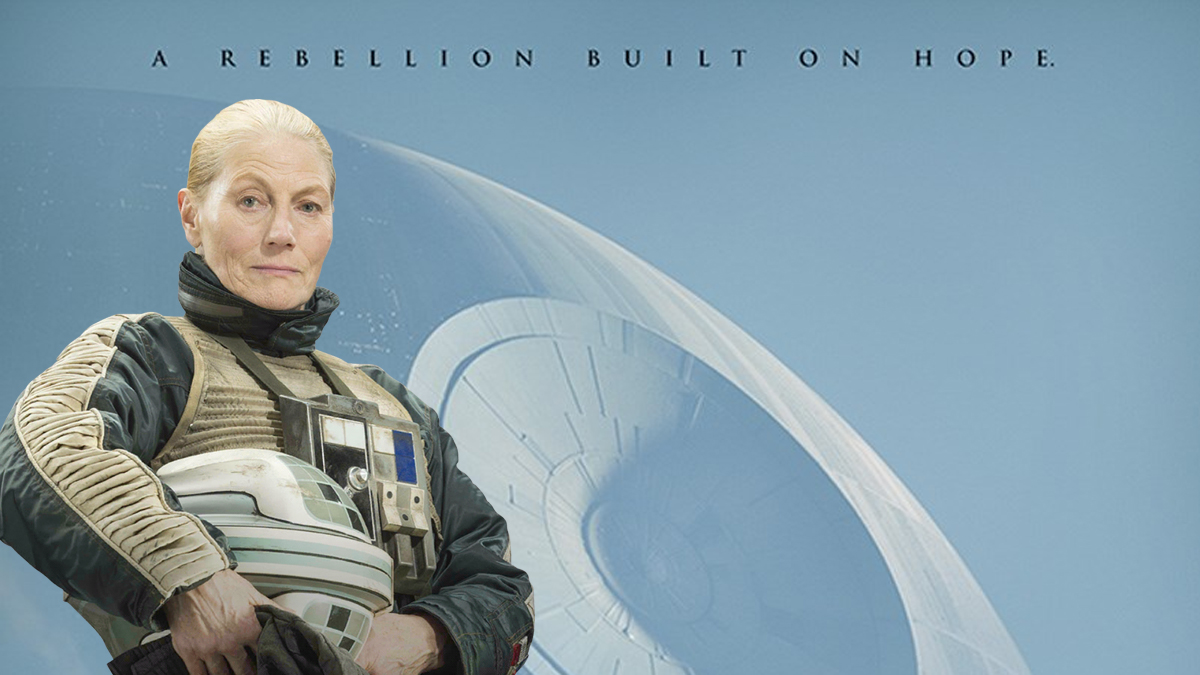
That’s your character’s call-sign, but not her actual name, I tell her. “No!” she exclaims, “I was always Blue Three?”
In Star Wars Rogue One: The Ultimate Visual Guide, “which is officially canon,” I say with due gravity. “Your character is named Jaldine Gerams, which is of course an anagram of Geraldine James.”
“How hilarious!” she laughs long and loud. “How do you know? Are you something of a Star Wars geek?” I’m something of an Anne of Green Gables geek, I tell her. “Well, yes. Of course.”
James doesn’t recall reading Lucy Maud Montgomery’s novel series as a child. (She was “a Secret Garden fanatic.”) As an adult though, the books have provided her with what must be considered one of the great roles of her later career.
Netflix’s Anne With An E is an adaptation of Montgomery’s early twentieth century books about bright, imaginative, red-headed Anne Shirley, an orphan adopted by ageing brother and sister Matthew and Marilla Cuthbert. Its first season introduced the world to Irish-American actor Amybeth McNulty (who is so perfect as Anne she was clearly grown in a laboratory expressly for the role) and to Geraldine James’ heart-breaking, wonderful Marilla.
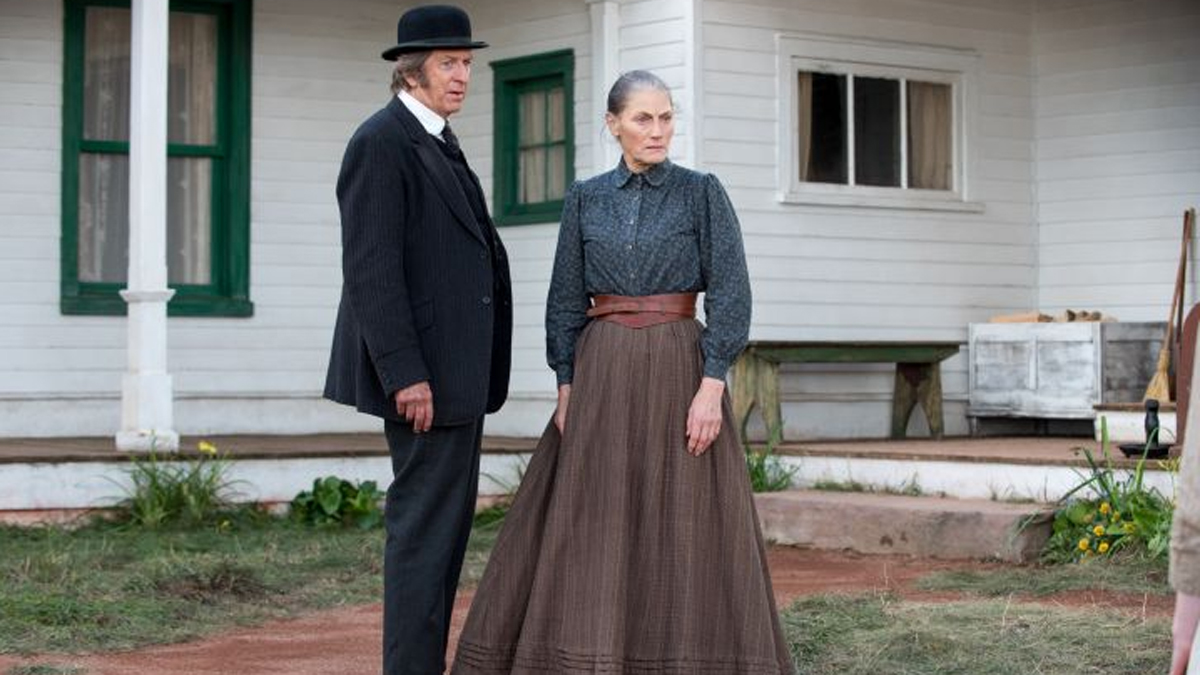
“Poor old Marilla,” says James. “My image of her is a shrivelled walnut! She’s sort of shrunken into herself, and this little girl comes in and just pushes a lit match inside and this woman suddenly goes ‘what is this feeling I’m feeling? I’m laughing! This girl’s making me laugh and smile? I care about her?!’
James loves Marilla, which is easy to do, though she’s frank about the fact that as an actor, roles can become tiresome. “Sometimes you do a job and you think, oh golly, that’s enough isn’t it?” Not so here, “I just read every episode and go ‘Ah God! That’s great!’ because I’ve got to dig things up about Marilla that I haven’t thought of, or that I have thought of and suddenly I go ‘Yes! we’re going to explore that!’. I’m not remotely fed up with it yet. I just hope people like [season two] as much as they liked the first one.”
The first season won’t have been to everybody’s liking, James admits. Showrunner Moira Walley-Beckett made changes to the story. In one episode, for instance, Anne Shirley gets her period.
“I think we may well have lost droves of audience at that point,” says James. “I think we may well have gained droves as well, but I think a lot of people might have gone ‘Ugh! Oh my God, Anne couldn’t possibly have a period!’”
James is having none of the squeamishness. “We all know very well that of course Anne had periods. We’re dealing with it because it’s an honest look at what is it like for a young girl to grow up in that society then, and asking how does that reflect on the societies that a same age girl is growing up in today?”
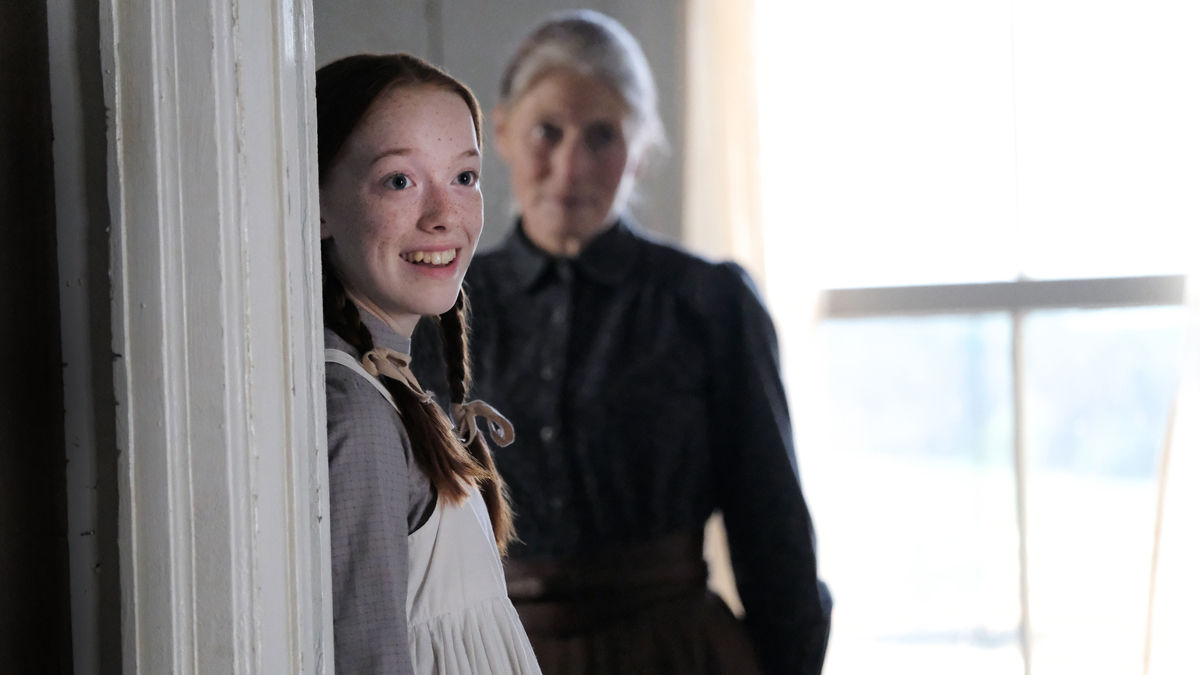
In season two, which arrives on Netflix this Friday, Anne stands up to a group of schoolboys ‘goosing’ the girls with the line “A skirt is not an invitation!”
“Precisely!” says James, adding wryly, “And what does that remind us of?”
Season two deals with issues, James tells me. “A lot of the stories are about victims. Anne was a victim as a child, because she was an orphan and got badly treated, she was a victim. Finding Marilla and Matthew and Green Gables, and the love and sense of family and belonging allows her to get through her victimhood, but it also allows her to recognise it in other people.”
“If you imagine what it could probably was like, to be an orphan in that place at that time, where there was no such thing as welfare—there were orphanages, but look at the things that are being discovered now about what happened in Ireland, the way children have been treated historically is shocking and dreadful and is coming out now—Anne would have had a very tough start in life.”
In the adaptation, that tough start is part explanation for Anne’s fanciful, romantic imagination. It’s her personality, yes, but it’s also how Anne escapes and retreats from painful experiences.
“I think the adaptation is incredibly faithful to the book, and at the same time, looking very honestly at the book from the twenty-first century. We’re not looking at this in a museum,” James explains. “We’re not looking back at historical figures, we’re looking at people who still resonate today and who still have something to say to the world today.”
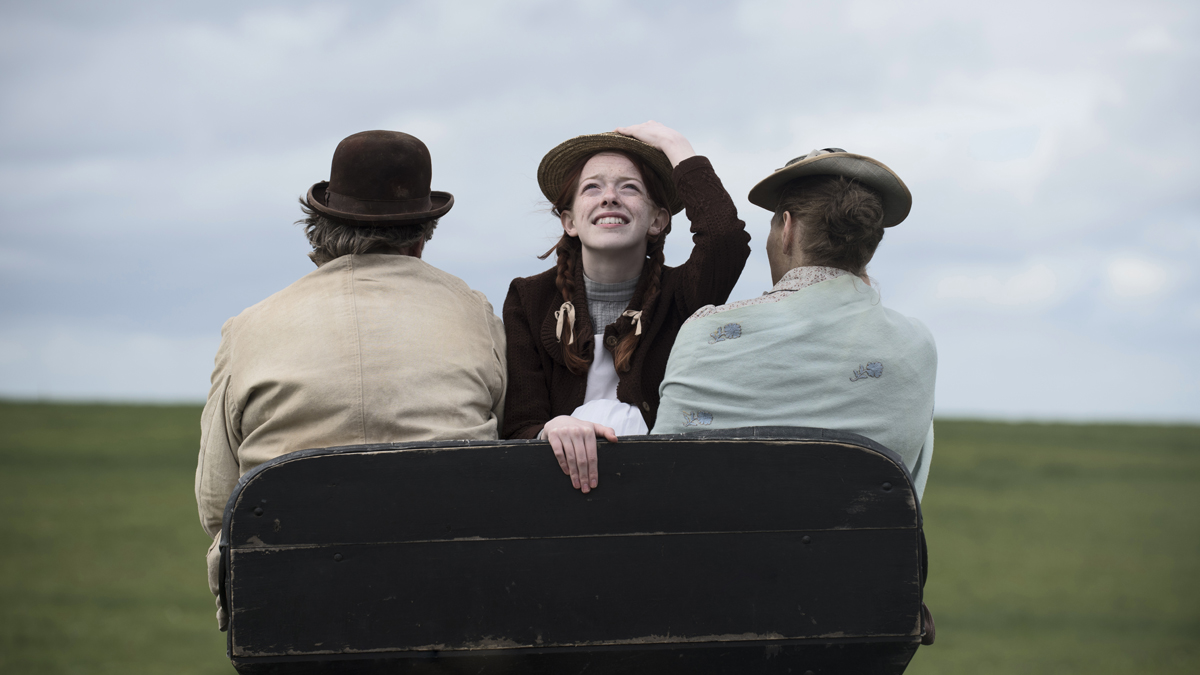
That explains, for instance, the narrative decision to make Aunt Josephine, Diana Barry’s wealthy, wise great aunt, a gay woman. “Lucy Maud Montgomery couldn’t write about that,” says James. “It just wasn’t done to write about those things when she was writing it. And those are the sort of stories that are dealt with in more detail in the second season. To find out more about the so-called marginalised people within society. Aunt Josephine is exactly that, she’s one of them.”
There are a couple of new characters who take the story off into completely different directions in season two, says James. But the centre of the story remains the unlikely but charming trio of talkative Anne, stern Marilla and taciturn Matthew.
“I think that’s what’s so great about the story is that essentially a child can teach two fixed, steady, older middle-aged people about life. I think that’s why people respond so strongly to the story, because it’s not about telling Anne how to behave—I mean, Marilla would like to do that, she tries to get her under control but Anne always does her own thing—it’s the older people who become fuller, better, more open, more realistic people because of this little girl.”
We will find out more about Matthew and Marilla’s pasts in season two, James also promises. “They’re thrown back into their own childhoods and have to deal with things that they have shut up and put away and ignored for all of their lives.”
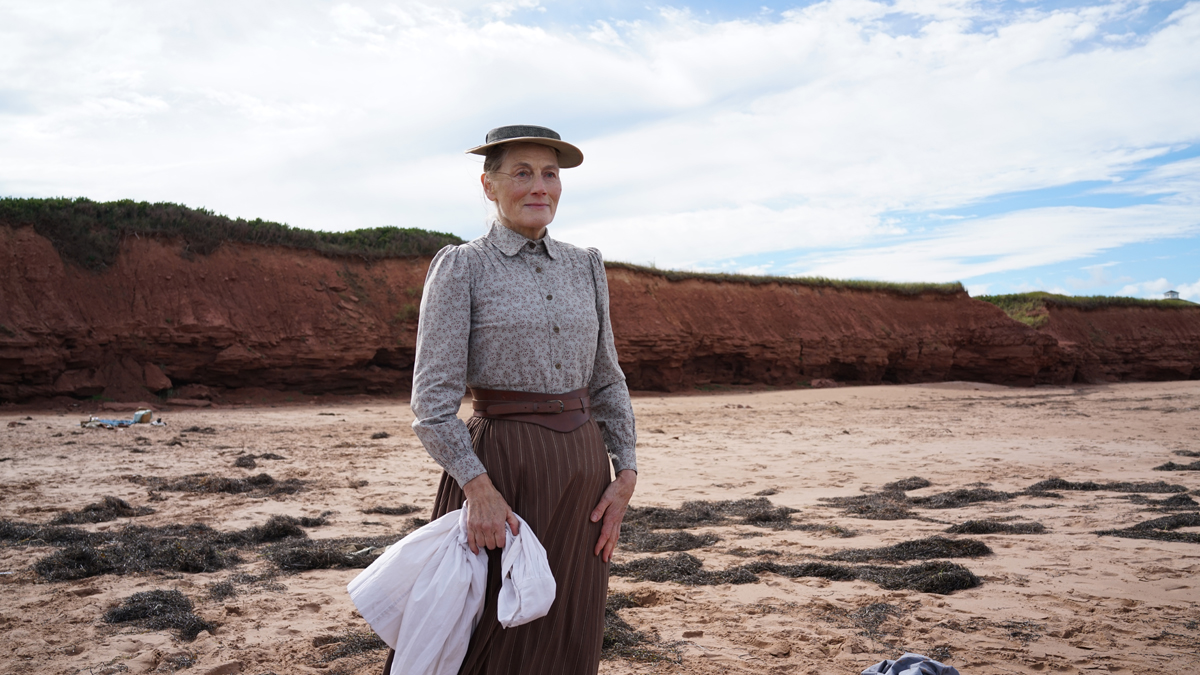
“That’s where Moira and the writers have extrapolated in a sense from Lucy Maud Montgomery—because this story isn’t written in the books—but it’s completely believable as to why Matthew and Marilla are like they are in the books. I think that’s what people took to in the first series, finding out more about their background”.
It was also gratifying to see Matthew and Marilla changed by their experience of loving, and being loved by, Anne. Being responsible for guiding a young woman in the world, and wanting Anne to have fuller experiences than her own has made Marilla into, if not “an accidental feminist” as Amybeth McNulty describes Anne, but a “very, very newly awakened one,” says James.
“Marilla had never heard that word. When she hears it in the reading group in season one, she doesn’t know what they’re talking about ‘this is a feminist writer – what?! What are you talking about? I know my place!’ Marilla had a suitor when she was sixteen, and when things went wrong in the family, she had to give him up. He wanted to go travelling with her, she had to stay at home and run the house. That was what a woman does. This is what a woman’s life is. For her to discover that actually a woman can do something different is amazing.
“In the second season, that goes further. Marilla starts to speak up for herself,” explains James, pride rising in her voice. “She starts to stand up for herself and that is incredible. It’s her guiding Anne towards being a good, full female but also allowing herself to speak her opinion and not think ‘I can’t say that, I mustn’t say that, that’s not my place.’ It’s less public, it’s more private, and it’s very individual, it’s very much her own way. That’s her feminism.”
It’s a rousing speech from James, delivered with all the fluency and emotion that comes from a decades-long career of speaking great words. It leaves you with the distinct feeling that by not writing roles for her at this stage of life, Shakespeare seriously missed a trick.
Anne With An E season two arrives on Netflix on Friday the 6thof July.
